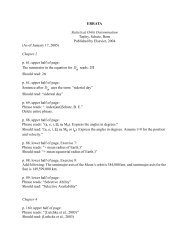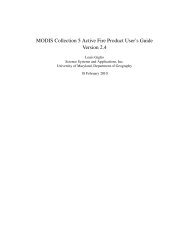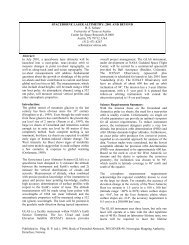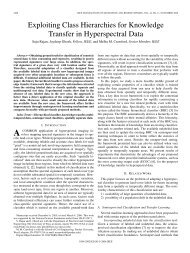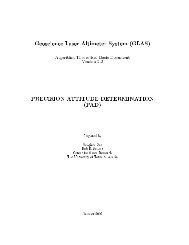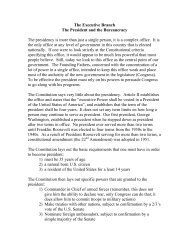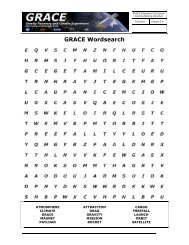Additional Study Notes Chapter 2 (PDF format)
Additional Study Notes Chapter 2 (PDF format)
Additional Study Notes Chapter 2 (PDF format)
- No tags were found...
Create successful ePaper yourself
Turn your PDF publications into a flip-book with our unique Google optimized e-Paper software.
most concerned with his contributions to political thought. Locke argued that the state of<br />
nature is a pre-political, yet moral society, where humans are bound by divinely<br />
commanded natural law. A social contract is made between citizens who institute a<br />
government to prevent people from occasionally violating natural law. In his book, “Two<br />
Treatises on Government”, he argues that man has “natural rights”, and that among<br />
these are life, liberty, and property. To safeguard these rights, man voluntarily<br />
contracted to surrender a certain amount of his sovereignty to government. Government<br />
must be built on the consent of the governed, people must agree on who their rulers are.<br />
Government must also be a limited government; that is, there must be clear restrictions<br />
of what rulers can do. Indeed, the sole purpose of government is to protect “natural<br />
rights”. No government can violate the individual’s rights to these things, if it does the<br />
people who set it up can and should overthrow it.<br />
The idea that certain things were beyond the realm of government contrasted sharply with<br />
the traditional notion that kings had been divinely granted absolute rights over subjects.<br />
Here we begin to see the change from the justification of power by the monarchies, as<br />
defended by Hobbes, to one where the justification for governing comes from those being<br />
governed.<br />
Two limits on government were particularly important to Locke. First, governments<br />
must provide standing laws so that people know in advance whether their acts will be<br />
acceptable. Second, and Locke was very forceful on this point, “the supreme power<br />
cannot take from any man any part of his property without his consent”. To Locke, “the<br />
preservation of property was the end of government”.<br />
Baron de Montesquieu (1689-1755) was less a theorizer than a discerning student of<br />
history and a shrewd analyst of political systems. In his book, The Spirit of the Laws, he<br />
came to the conclusion that different types of governments are best suited to various<br />
conditions. For instance, absolute monarchy is best for countries of vast area, limited<br />
monarchy for countries of moderate size like France, and republics for small states like<br />
Venice or ancient Athens. Not only did he approve of Locke’s doctrine of limited<br />
sovereign, but he specified how it can best be secured – by a separation of powers and a<br />
system of checks and balances. The powers and functions of government should be<br />
equally divided among kings, lords, and commons, each on being checked by the other<br />
two. His model was converted into executive, legislative, and judicial branches in the<br />
American system.<br />
Also during this era, a lot was changing in the thought of how economic systems<br />
functioned. Some French thinkers began to teach that economics has its own set of<br />
natural laws, that the most basic of these laws is that of supply and demand, and that<br />
these laws operate best when commerce is freed from governmental regulation. This<br />
doctrine came to be known as that of laissez faire (or free trade and enterprise). The<br />
chief formalizer of the theory of laissez faire was Adam Smith, a Scottish professor of<br />
philosophy who spent time in France. His “Wealth of Nations” was published in 1776<br />
and has remained the bible of laissez faire economics ever since. This is the basic<br />
economic philosophy that has dominated our culture for over two centuries.



